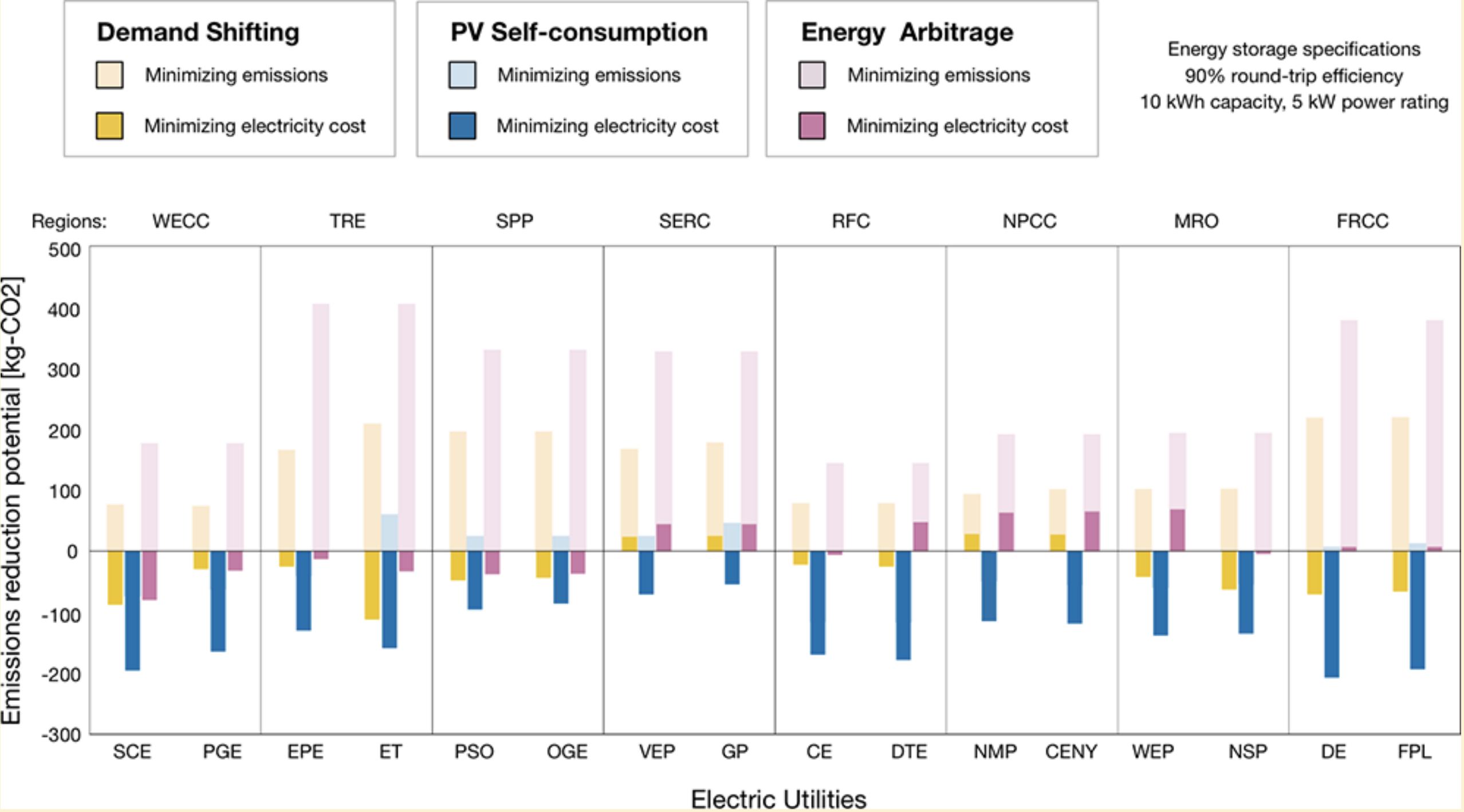In many jurisdictions, policy-makers are seeking to decentralize the electric power system while also promoting deep reductions in the emission of greenhouse gases (GHG). We examine the potential roles for residential energy storage (RES), a technology thought to be at the epicenter of these twin revolutions. When operated with the goal of minimizing emissions, RES can reduce average household emissions by 2.2–6.4%. While RES is costly compared with many other emission-control measures, tariffs that internalize the social cost of carbon would reduce emissions by 0.1–5.9% relative to cost-minimizing operation. Policy-makers should be careful about assuming that decentralization will clean the electric power system, especially if it proceeds without carbon-mindful tariff reforms.

Unintended Effects of Residential Energy Storage on Emissions from the Electric Power System
- Post author:sdgpi
- Post published:Jun 5, 2018
- Post category:Research / SDG 11 / SDG 13 / SDG 7 / SDG 9 / Sustainable Development Goals




